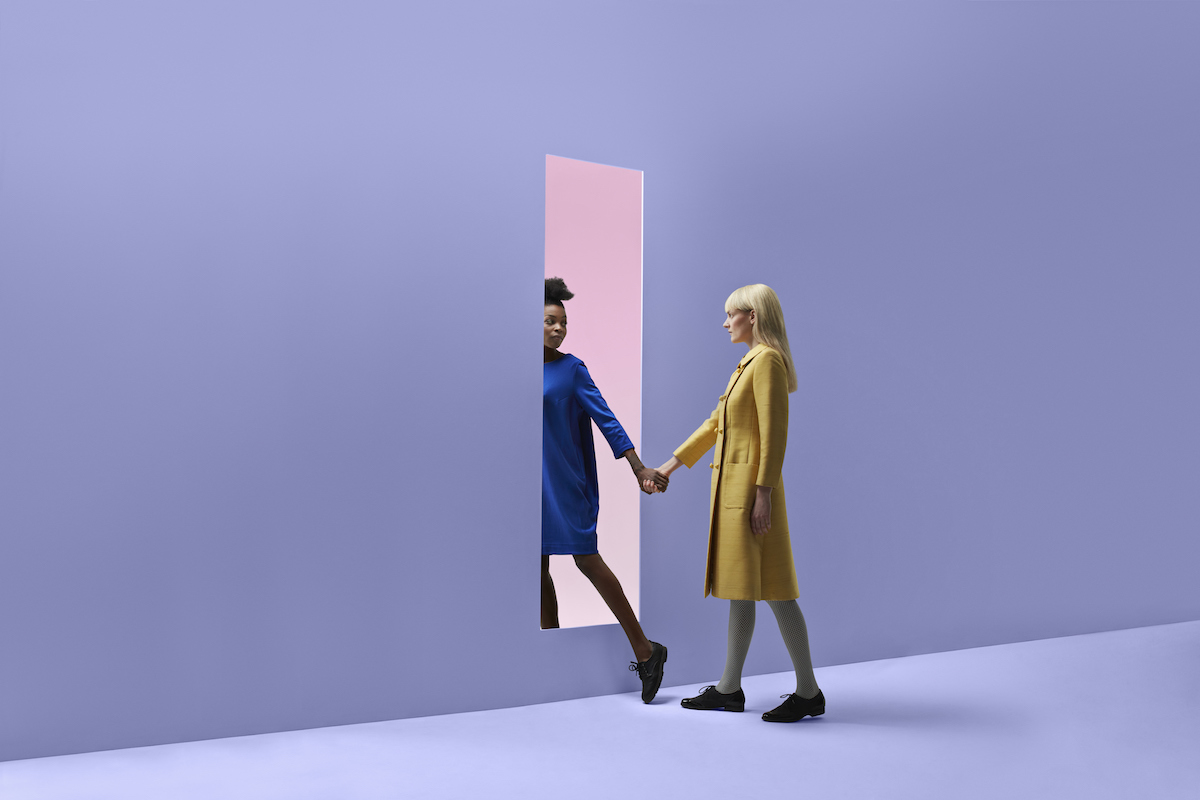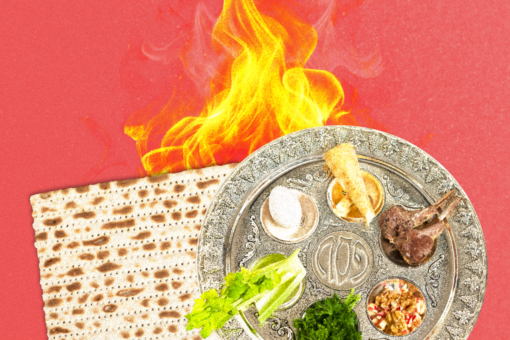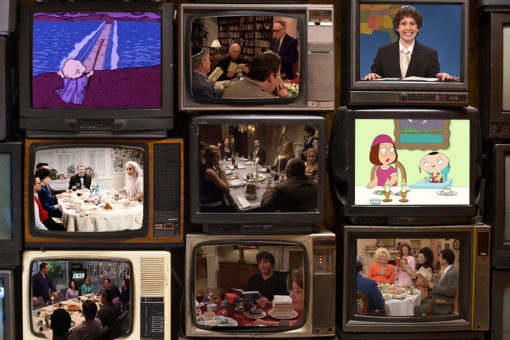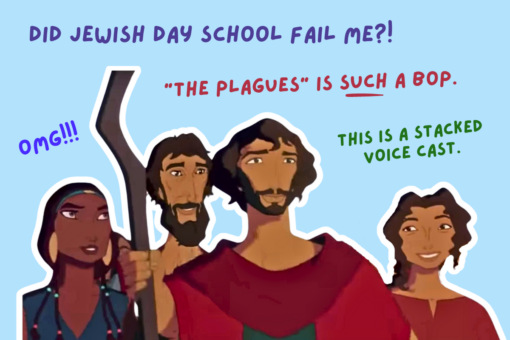The first time that I tried to step foot into my university’s Jewish center, I couldn’t bring myself to do it. I stood outside the beautiful brownstone and I cried and I turned around and I walked home.
When I got to college, I had no intention of being part of the Jewish community on campus — or any Jewish community, for that matter. I was overcome with fear and anxiety at the thought of entering a Jewish space.
I had spent the last four years making the conscious decision to separate myself from religion in every way I could find. At least, the model of religion that had been presented to me: one that was rigid and held little space for anyone who couldn’t participate, practice, and exist in a very specific way. Any small chance I had of fitting into this mold disappeared when I got to high school and was diagnosed with a chronic illness. I had faced a multitude of medical problems throughout life, but none seemed as severe, as never-ending, as this did. This time it was chronic.
There was no end in sight. Instead of seeing a cure, I saw in front of me a lifetime of symptoms, doctors’ visits, and medication adjustments. I felt as though my body was becoming a stranger. There was no way I was going to learn to accept this as my reality, and certainly, no way that I was going to accept it as part of a “bigger plan” or “God’s will” or any of the other aphorisms I had heard from religious people in my life and the views of religion presented to me in pop culture.
Up until this point, my relationship with religion walked the line between “complicated” and “non-existent.” I hadn’t yet found a way to reconcile trauma that I had experienced with any kind of higher power, and the few times that I did, that higher power was not one that I was all that interested in getting to know. The models of Judaism that I had internalized growing up were either completely secular or ultra-Orthodox. For many reasons, I felt as though the latter could never be for me, so I found myself comfortably pushed into the former. I hated Hebrew school. I had no interest in my bat mitzvah Torah portion. I wouldn’t be caught dead at Shabbat services.
However, when I look back, I don’t think that this was so much a product of rejecting religion, but more so a lack of exposure to Judaism as a vehicle of radical inclusion. My Hebrew school classes were not structured to accommodate neurodiverse brains. I had no context for how my body could fit into the words of Torah. I had never seen health and wellness placed above the duties of what our tradition demands, and I definitely didn’t know that putting our health first is actually precisely what our tradition demands.
So, on that hot day in August, as I stood outside of my school’s Jewish center, everything that made me distance myself from Judaism in the first place came rushing back to me. And now with the added layer of chronic illness to make everything harder, entering this building and this spiritual space seemed impossible.
But the following week, I tried again. And this time, as I stood outside the building (crying), another student came out and invited me in. She brought me into Shabbat services, where even though my anxiety eventually got the best of me and I left shortly thereafter, at least for a moment, I felt seen. I felt seen as someone who was meant to be there, who was always meant to be there. I felt seen in a Jewish space for the first time. The following week, I came back. And I have been coming back every week since.
I spent my first semester of college exploring my newfound safety in Judaism. I went from feeling as though there was no place in Judaism for my body and its various challenges, to finding not only a community of folks who were audaciously accepting, but also the myriad of texts and traditions that did the same. I found models of disability inclusion everywhere I turned, and I found people willing to unearth them with me.
When my second semester of college was about to get underway, and I had just begun to feel as though I was getting my footing in my new home and new community, I fell and broke my hip. I returned to school for the semester using a wheelchair (for the second time in my life) and dealing with a plethora of new medical hurdles to overcome and work around. As a result of the time I spent in the hospital after my injury, I found out that I had yet another chronic medical condition. It was during this time that I realized the impact of the community I had just recently become a part of — a community that I didn’t have to fit myself into by leaving parts of myself behind, but rather a community that felt as though it was built around each person who entered it.
In my Jewish community, I was reminded every single day of b’tzelem elohim, that we are all made in God’s image. I was taught the principle of pikuach nefesh, the idea that our health and preservation are more important than any other rule or commandment. I was shown thirty-six times that the Torah commands us to love and care for the stranger — there is no law written more times than this one. I learned about Abraham and Sarah’s tent, which was left open on all four sides, and the Jewish imperative of building spaces that are truly for everyone. In front of me were not only pieces of Jewish liturgy that were important to me, there were practices and commandments that are considered most important to our tradition. Pikuach nefesh comes first, welcoming the stranger comes most often, b’tzelem elohim and the tent hold everyone.
Every morning that I woke up feeling as though the city wasn’t worth maneuvering in a wheelchair or my medications were too much of a burden or I was too much of a burden, I knew I had a friend willing to wheel me to Shabbat services and a rabbi who would listen and a beautiful brownstone that would always be a home to me. I have been shown a new way to look at the world and at myself. I still sometimes think of my body as a stranger, but now I have since learned the importance of welcoming it.
It still feels unbelievable to me that I found radical acceptance in a community that I had always felt excluded from, but there is something almost magical, spiritual, if you will, about home emerging from the most unexpected places.
For the first time in my young, chronically ill, chronically hurting, chronically doubtful life, I don’t have to doubt whether or not I am meant to, able to, or allowed to be where I am. I know I have 4,000 years of tradition, and two years of my newfound community, to tell me yes. Yes, you are meant to be here. Yes, there is a place for you. Yes, you, too, are b’tzelem elohim.
Image by Klaus Vedfelt/Getty Images



